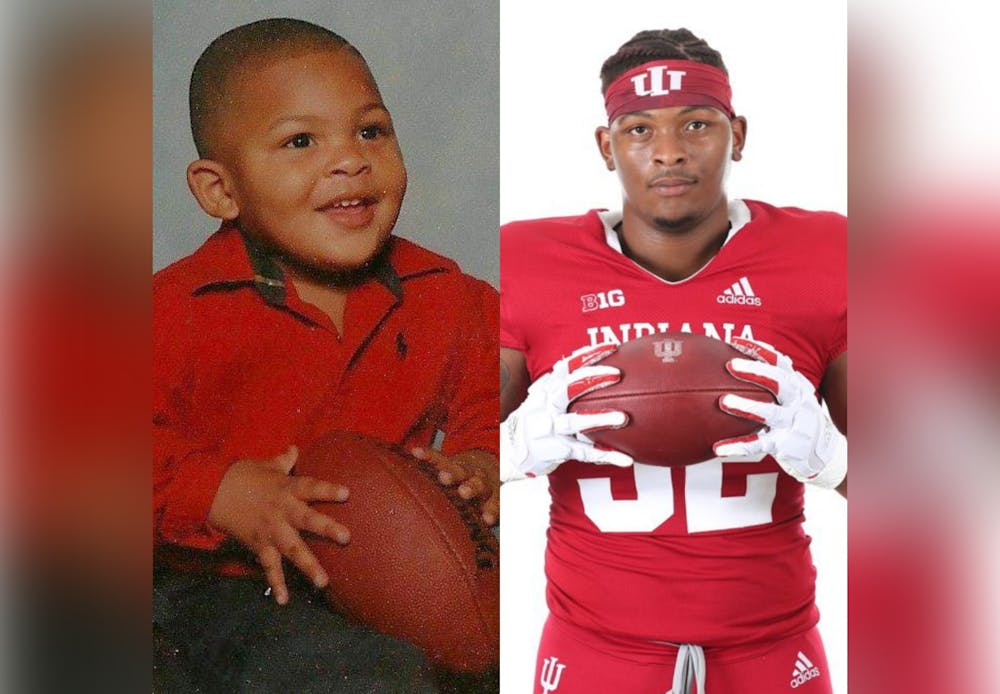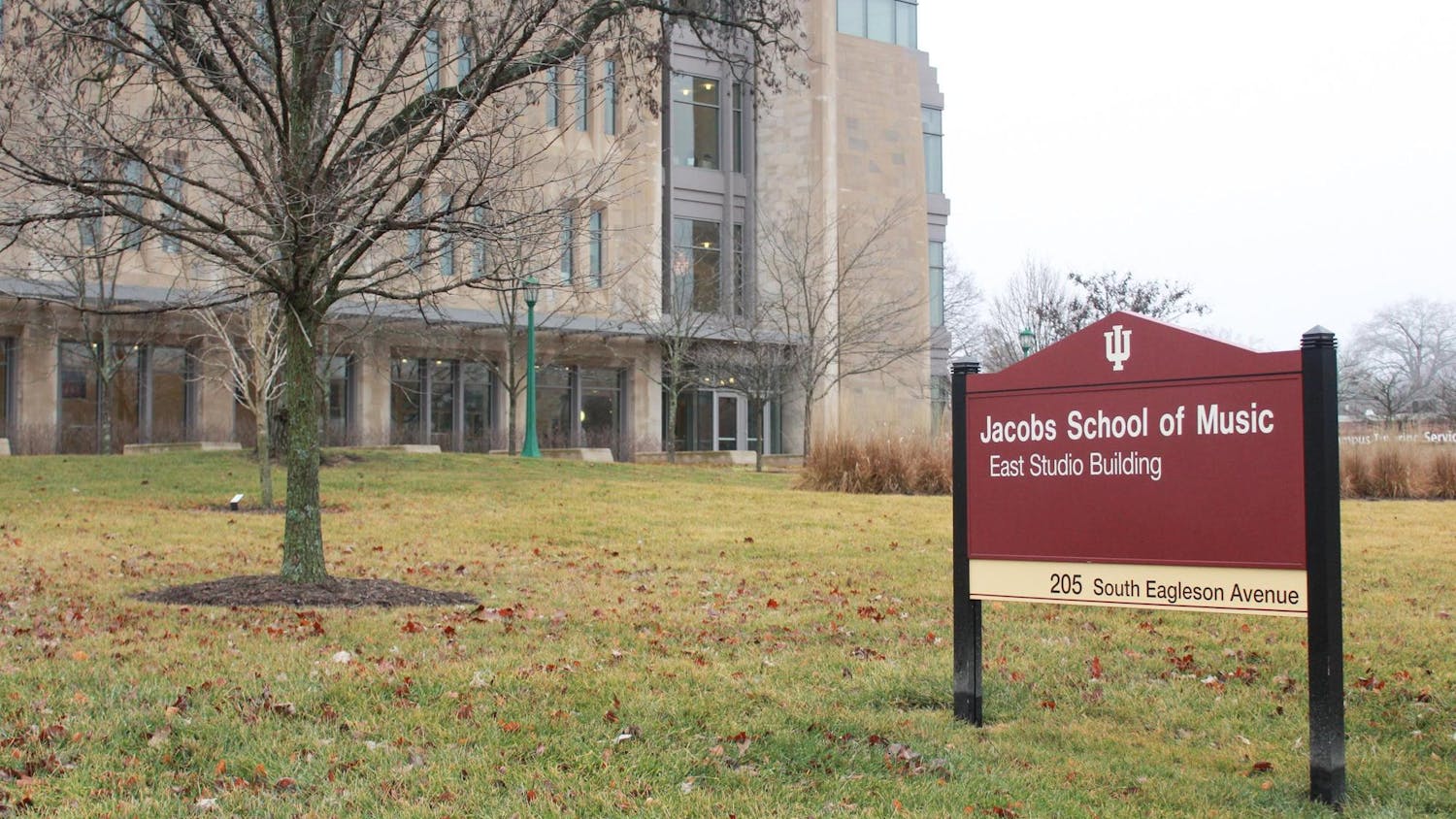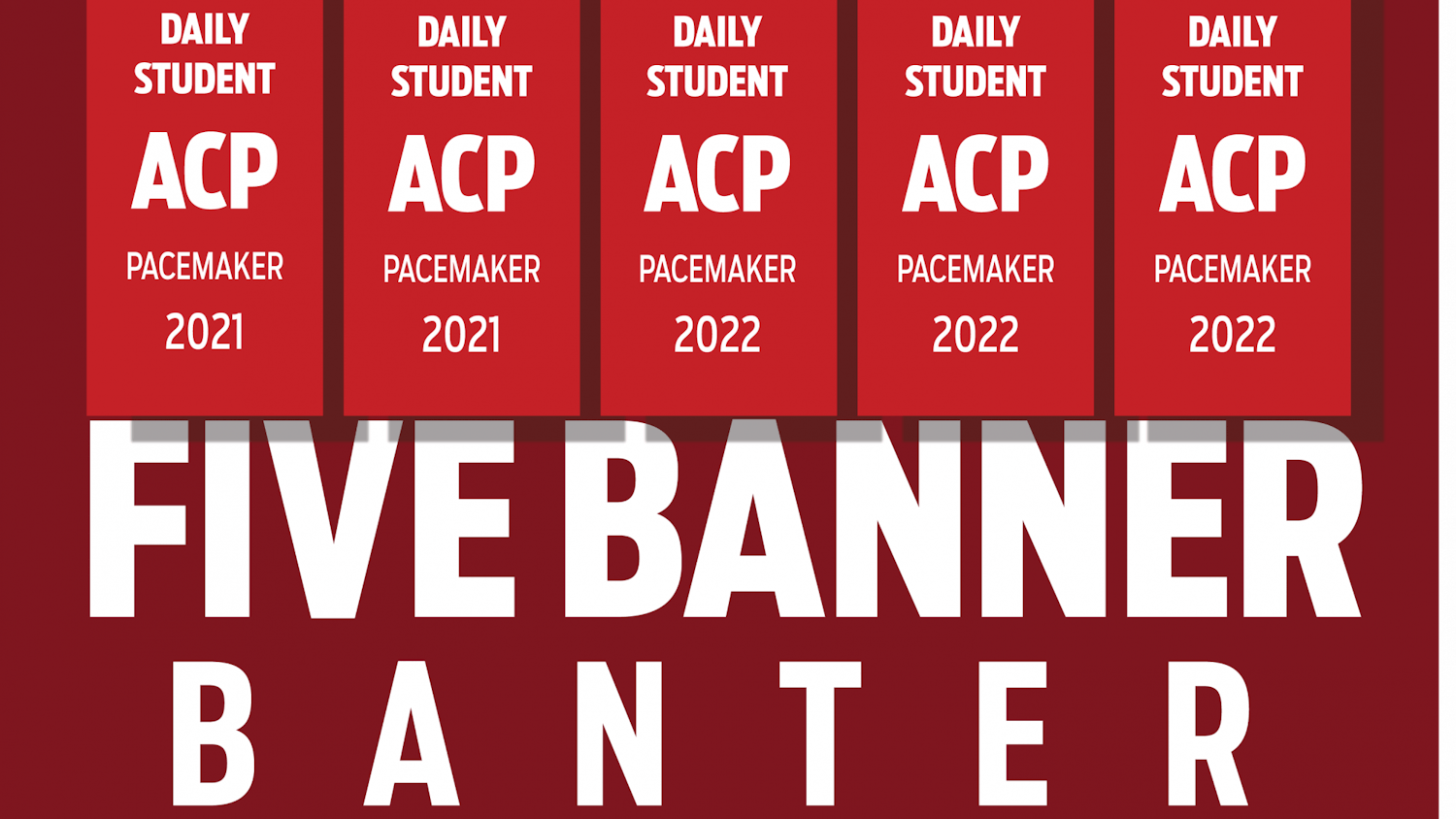In the back of an Amazon warehouse in Indianapolis, DaVondre Love whispers to himself.
“Embrace the suck,” he repeats under his breath. It’s a simple idea. He picked it up at football practices while playing for IU, and now it helps him make it through the work day.
It’s been nearly a year since IU lost to the University of Tennessee in the Gator Bowl, since Love played his last game in a Hoosier uniform.
Since then he has become the first member of his family to graduate college. He’s lost a brother and dealt with depression and anxiety. He’s worked four jobs.
Love is now 23 years old. He was 6 when he started playing football. It’s been his driving factor for years — going to camps through high school, trying to get recruited. It was his main focus in college, but now he’s in the workforce.
For 10 hours, Love stands at a conveyor belt, scanning items and putting them in the appropriate totes. There’s no music playing in the building and he’s not allowed to bring his own headphones. His co-workers certainly won’t talk to him, so he keeps his own company.
“Embrace the suck,” he tells himself. “It pays the bills. You’ve got three dogs at home, you’ve got a girlfriend.”
Love dreads working these shifts. He’s held a few warehouse jobs since graduating, but he hasn’t worked in one he’s happy with yet. His dreams died when he left football, and he’s now searching for a new one.
Only 3.8% of eligible Division I players were selected in the 2019 NFL Draft. A small selection of others may sign undrafted rookie contracts. The rest, like Love, are forced to find careers in a new world where they don’t have sports.
The transition isn’t easy.
Love is quick to let anyone know he doesn’t regret playing college football.
Football has been there from the beginning.
Love has a picture of himself from when he was just 1 year old. He was a fat baby, his mother Rickia Brown-Rockett said. He’s wearing a red Ralph Lauren polo. In his lap is a Spalding football. On his face is a smile.
She signed him up to play when he was 6 years old. He was already big by first grade and people thought he was older. He loved the game and loved throwing other people around.
But he never found a passion outside of the game, never found something he could do once Saturdays were no longer gamedays.
While he was in college, Love told himself he had a few years to figure out the next steps.
He thought he knew where he was headed next in his life. He got a degree in liberal studies and minored in criminal justice, but like every other collegiate football player, Love said he thought he was headed to the pros.
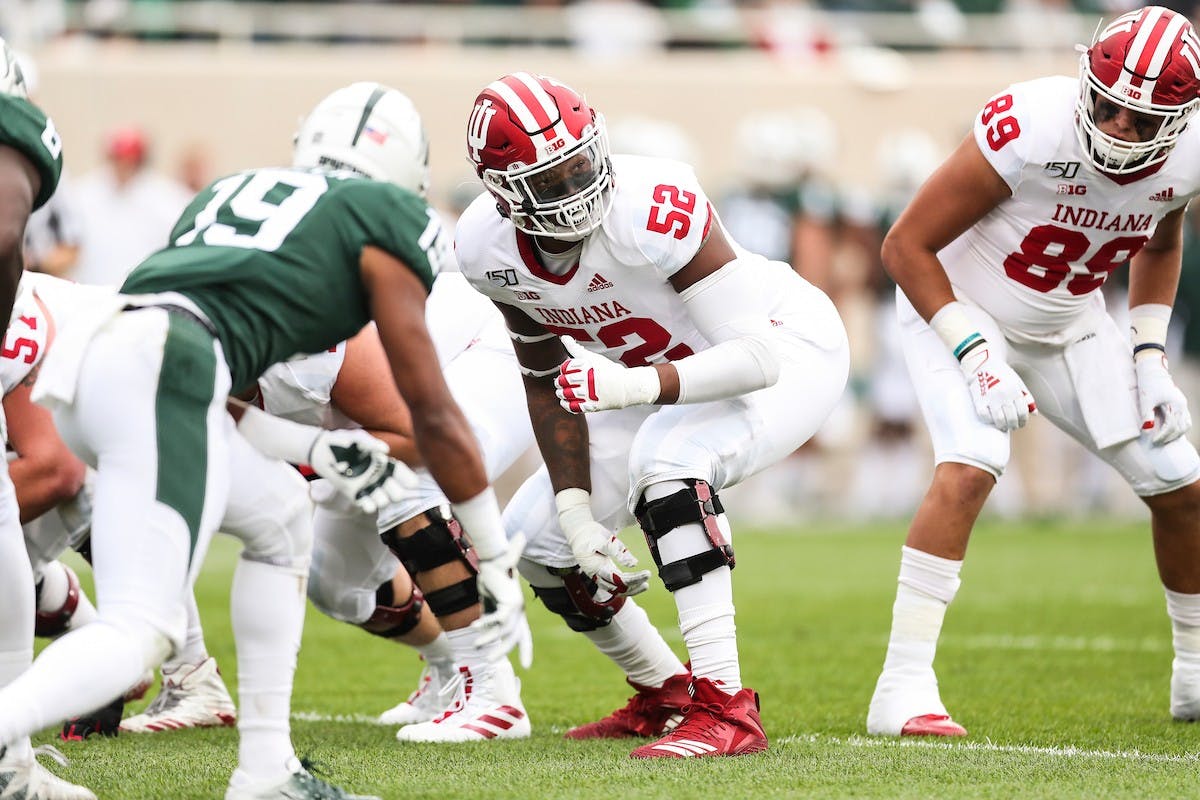
Yet time was running out.
The final 15 seconds of the Gator Bowl marked the final 15 seconds of his five-year clock and the end of his playing days.
He stood on the sideline, taking in the loss. He reminisced on memories, practices, moving into his freshman dorm. He embraced his teammates. He shed a couple of tears.
After five years of devoting himself to the game, he no longer had a plan going forward.
“I wish that I was as invested in figuring out myself beyond football,” Love said. “I was just so focused on trying to play ball.”
Suddenly, football was gone.
“He was devastated,” Brown-Rockett said. “He always dreamed and thought that football would be the direction that his life went in after IU.”
He struggled mentally, feeling like he failed for not making it professionally.
That final game came a little more than a month after Love earned his first career start against Purdue, the game he calls his moment of glory. But he played through a knee injury that kept him out of most of the Gator Bowl and required surgery after the season ended.
Coming off his second ACL surgery, Love was facing the reality of an uncertain future.
He had to switch directions away from the only path he’d known. Instead of heading off to camps and going on recruiting trips, Love was heading off to job interviews and going on job listing websites.
First, he worked at a Speedway. In his short time managing, he found himself enjoying delegating and finding ways to make people’s days. Even now, customers from his neighborhood ask when he’s coming back.
Brown-Rockett said being personable is part of who Love is. He’s always trying to help others, to make their days better. He built a rapport with teachers from his high school, who now keep his youngest brother in check with threats of updating Love.
When Love was a teenager, Brown-Rockett said money was sometimes tight. One Christmas, Love told his mother to save the money she would be using on him.
“He said ‘Momma, I want you to make sure you get my brothers something for Christmas,’” Brown-Rockett remembered. “‘You don’t have to get me anything for Christmas. I’ll go without.’”
For Love, family has always been first.
Love was close to D’Juan Nunn Jr. from the beginning. The two were best friends, even when they lived across the country from each other.
Nunn, Love’s half brother, was two years younger than him. When Love was 7 and Nunn was 5, they found out they had different dads. Nunn’s parents started a custody battle, leaving Nunn with his father in Virginia.
When Nunn turned 18, he decided to come back to live with Love’s family in St. Louis.
Brown-Rocket was concerned about how the custody battle would affect their relationship. She said it was messy, and the two of them had barely spent time together while they were raised in different households.
“If you look at the home videos back when we were kids, we were always just joined at the hip,” Love said. “And then we were forcibly split up, we weren't talking as much, just because it hurt. Then we got back together and were joined at the hip again.”
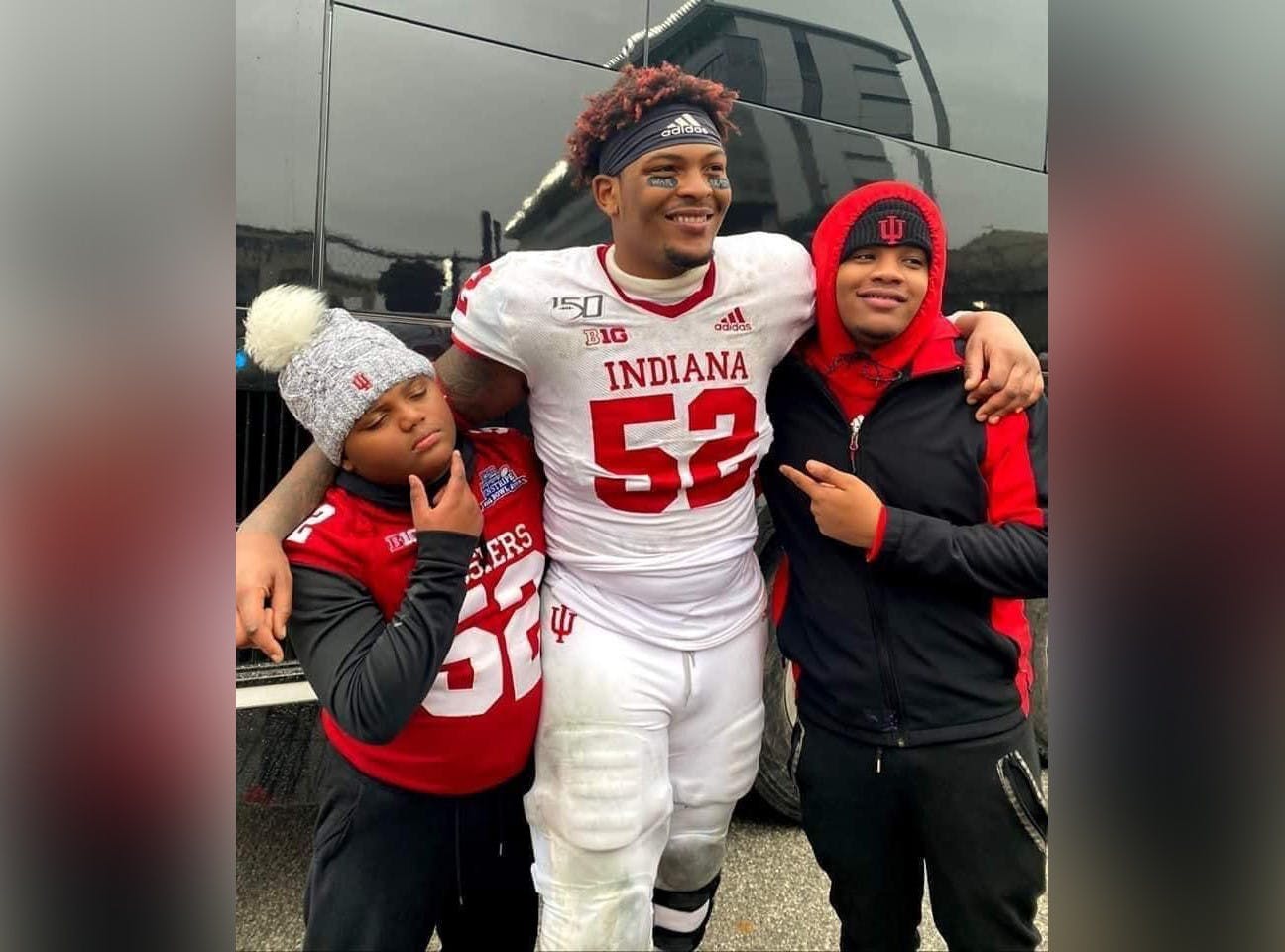
On July 6, Nunn was playing pickup basketball and said he felt tired. The doctors said that the moment he laid down is likely the moment he died.
That day, Love was in Indianapolis and got a FaceTime from a friend Nunn was playing basketball with. Soon after, he was on Interstate 70, speeding toward St. Louis. He got another call while he was driving. Nunn didn’t make it.
Nunn had fibrosis of the kidneys, and the doctors said it was bad enough they were surprised he wasn’t in pain and needing to be on dialysis. The stress on his kidneys led to additional stress on other vital organs, including his heart. Nunn’s heart swelled and he overexerted it the day he died.
Love felt like he was already in a position where nothing broke his way, no matter what he tried. Now he had to grieve the loss of a younger brother, one he never expected to lose. It was like God was testing him.
“I had already been dealing with some anxiety and depression before he passed,” Love said. “We had both been dealing with some things. We were able to pick each other up a lot because we knew and related to everything that the other was going through. So once he left, It was like, ‘Oh, man, I don't even know if I can do this anymore.’”
At the funeral, Love gave the eulogy.
He stood at the podium above his brother’s white casket and told the crowd to focus on the beauty of Nunn’s life, not the duration of it. He told them to look around and see how many lives he touched. His goal was to make people laugh because that’s what Nunn would have wanted.
When Love is struggling, he’ll ask himself what Nunn would do. The answer is usually to put a smile on and to laugh.
“I just try to keep pushing in hopes that something great is going to happen one of these days,” Love said.
Love left Speedway and moved on to working in warehouses. First Amazon, then HomeGoods.
Quickly, Love realized the money wasn’t worth the work.
Love hates answering to other people, like he’s just a cog in the machine. He feels expendable, rushed to be as good as others too quickly, even though he’s never worked in a warehouse before.
“At the end of the day those people are just a number,” Love said.
He’s also afraid of the sustainability of that type of heavy lifting. His knees are fine after his two surgeries, but they may not be that good forever. The man who trained him at Amazon, who had been working in warehouses for 30 years, could no longer walk straight.
He should be at home with his wife, Love thought. He should be enjoying his life.
Love doesn’t want to get to that point. He wants to do something meaningful, not lift boxes in a warehouse.
He sat down and brainstormed with his mom, trying to think of a purposeful career, something that falls under the umbrella of his minor.
“I was thinking more like being a cop,” Love said. “But I didn't want to be in law enforcement whatsoever, which is funny because I mean, my minor was criminal justice.”
Originally, Love intended on getting a degree in education, and maybe coaching while he taught. But when the class schedule for education didn’t sync up with football, Love didn’t hesitate to push it aside for something else.
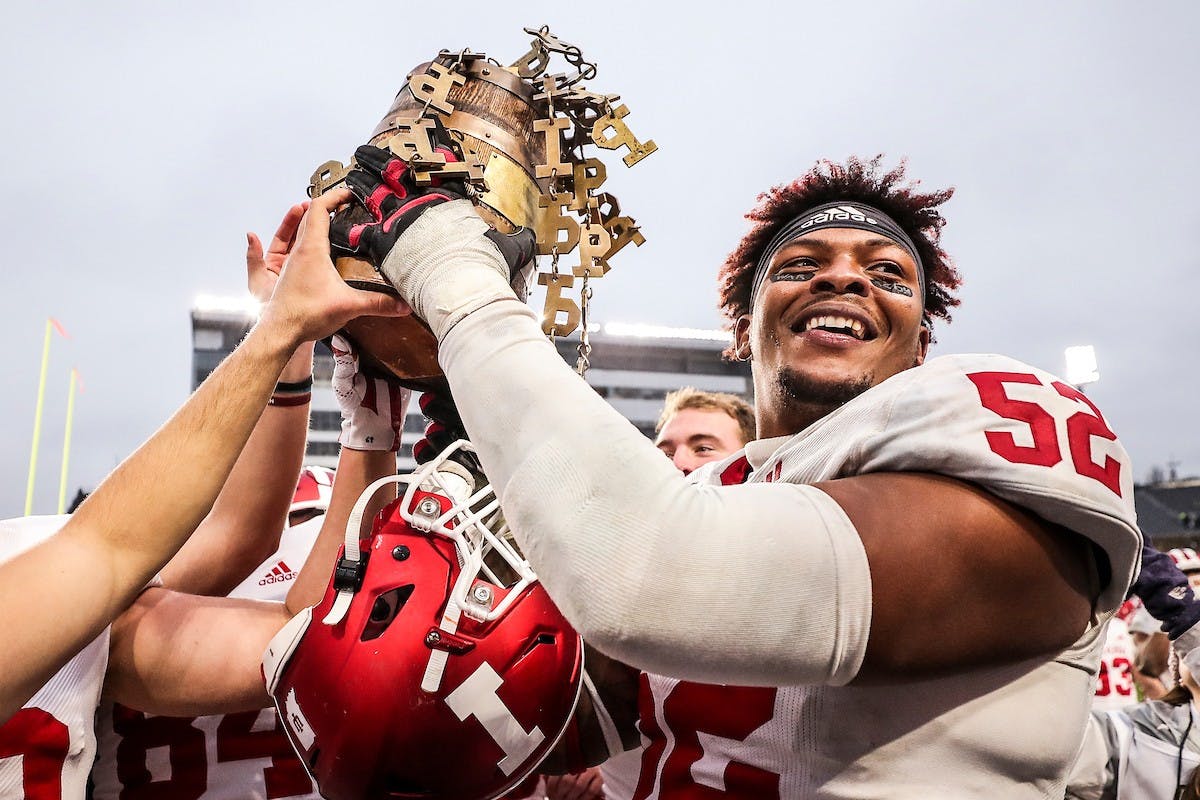
Brown-Rockett suggested he become a correctional officer, or something within social work.
Shortly after, he got a call from Mike Pechac, IU’s director of player development. Pechac was a father figure for Love at IU, someone who was always checking in with him and talking about the future.
Often, the two would discuss Love’s future plans and goals.
Pechac told Love he would make a good correctional officer.
Pechac is a glimpse into what Love could be.
He played college football at Mount Union College, where he was a part of two national championship teams.
He graduated and started searching for a career. He coached high schools and colleges, got married and helped coordinate community events.
Finally, he came to IU, in a role where he helped young athletes like himself become accustomed to college football. He helps them set a path toward their future.
The players call him the team dad.
Thirty years ago, when he left Mount Union, Pechac never imagined he’d be working as a player development coach in college football. He’s come nearly full circle, to a position where he can share with the players the things that he was once told himself.
Pechac is a real father to three sons as well. Just as he would his own kids, he wants to check in on the athletes and make sure they’re doing alright.
He found a job he was passionate about, where he could help others. Now it’s where he’s directing Love.
“D-Love, that’s what we call him,” Pechac said. “He was just a great kid. I loved that relationship with him because we just talked about a lot of things. We just talked about life a lot, a lot of one-on-ones about what's going on in life, how are you doing.”
Pechac works to help his players find something that motivates them in life. It may be money or it may be coaching, but he hopes his players find that light at the end of the tunnel.
So when he and Love talked about corrections, Pechac went to work.
Shortly after he left college, Pechac worked in the juvenile detention system himself. It was a part of his own journey between playing and coaching, and he thought a similar path might work for Love, too.
Since their conversation, Pechac has been trying to find someone who can make a connection.
Through his time coaching, Pechac has built circles around the country, connecting with coaches who have strong relationships within their community. He’s been reaching out to people who know the reputation of IU’s program, hoping one can get Love’s foot in the door.
Pechac just wants others to find something they love, just like he has. For someone like Love, Pechac thinks that will include helping others.
“The only thing you can do for me is go help another kid,” Pechac said. “Go help another young person who’s went through the same struggles you went through. And if you do that, I’ll be more proud of you than anything.”
Love is still a long way from settling into a career. For now he’s just working jobs that pay, sometimes doing DoorDash.
He pauses, and takes the deep breath of a man lost in his ways. His dream died before it was supposed to.
“Basically, if I knew that football wasn’t going to work out for me, I would have put more time into exploring other options,” Love said.
But an idea is a good enough place to start.
There’s a few reasons he’s drawn to being a correctional officer. For one, he likes watching prison shows.
His favorites are “60 Days In” and “Inside World's Toughest Prisons.” But in those shows, the guards are hurting the inmates, not helping them grow.
Originally, he thought that he didn’t want to work in a jail or a detention center, but he realized he was looking at it the wrong way.
With social work, he can be the person who guides at-risk kids and helps improve their lives just by being someone that believes in them. He likes working with kids, which is part of the reason he originally wanted to be a teacher.
“I'm living proof that if you put your mind to something and you are willing to put in the work and do the right thing, you can get to where you want to go,” Love said. “You don't have to be a product of your environment.”
Love’s most recent job is in a sales position at Aldi. He’s still far away from where he wants to be, but he’s figuring out what he doesn’t like. Slowly, through trial and error, Love is piecing together a new dream.
As his mom puts it, he’s learning DaVondre.

